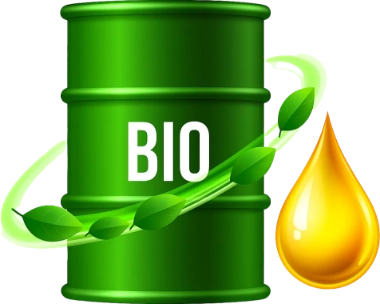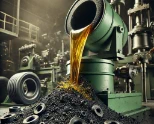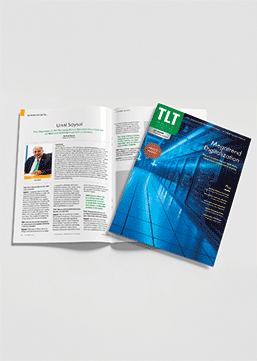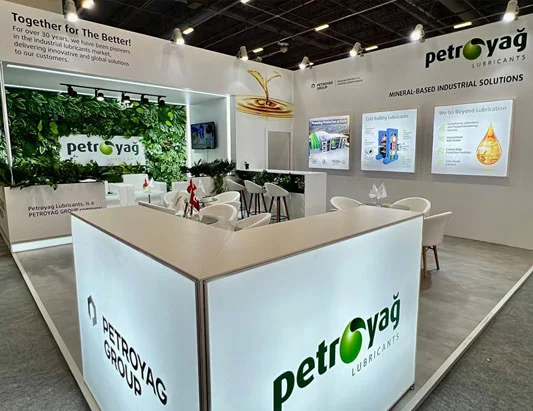In a world where environmental sustainability is no longer a choice but a necessity, eco-friendly products and solutions have become a strategic priority across all industries. Environmentally Acceptable Lubricants (EALs) are not just a responsibility for the future — they are a responsibility for today. As the world rapidly evolves, falling behind means being left behind.
What Are Environmentally Acceptable Lubricants (EALs)?
EALs are lubricants that are readily biodegradable, non-toxic, and environmentally friendly by design. These products offer a sustainable alternative for equipment used in sectors closely tied to natural ecosystems — including agriculture, forestry, marine transport, aquaculture, energy generation, and drilling operations. Companies that fail to comply with current regulations risk exclusion from supply chains and a significant loss of competitive advantage.
Why EAL?
- Eco-friendly formulation
- Sensitive to human and environmental health
- Compliance with legal regulations
- Contribution to brand reputation and environmental performance
EAL products not only represent an environmentally conscious approach but also deliver strong technical performance. Beyond being an industrial trend, they should be seen as a fundamental part of how we operate.

Why Is EAL a Necessity?
For all organizations that embrace environmentally responsible production, the use of Environmentally Acceptable Lubricants (EALs) is no longer a choice — it is an inevitable necessity. Rather than viewing this transition as a gradual shift, it must be approached as a strategic obligation that is vital not only for environmental and human health, but also for achieving long-term corporate sustainability goals.
The transition to EAL products is not just an environmental or regulatory requirement — it is also a critical step in terms of social responsibility, human health, and corporate reputation. Companies that fail to plan for this shift today will inevitably face the risk of falling behind in tomorrow’s competitive landscape. For this reason, EAL is no longer optional; it is a comprehensive necessity with regulatory, social, and economic dimensions.
- Direct Environmental Risk:
It is estimated that at least 1.5 million tons of petroleum-based lubricants enter the environment each year through various means. This figure is equivalent to a full tanker of oil leaking into nature every 20 minutes. Leaks from equipment used in sectors such as maritime, agriculture, and forestry should not be dismissed as “minor spills” — they represent a “toxic silence” spreading across ecosystems.
- Increasing Regulatory Pressure:
Regulations such as the European Union Ecolabel standard and the U.S. Vessel General Permit (VGP) have made the use of EALs a legal requirement in many sectors. By 2030, global regulatory bodies such as the IMO, OECD, and EPA are also expected to implement comprehensive regulations mandating EAL usage. For this reason, companies that fail to define an EAL transition strategy today face serious risks in the future — including loss of brand value and exclusion from the market.
- Corporate Sustainability and ESG Obligations:
COP28 (2023 United Nations Climate Change Conference) and ESG (Environmental, Social, and Governance) reporting requirements are driving companies to implement solutions that reduce their carbon footprint. EAL products, with their low carbon footprint, contribute to these goals and play a critical role in achieving “net zero” commitments. Companies with net zero targets for 2030 must begin developing their EAL transition strategies today.
- Protecting Human Health :
Petroleum-based lubricants pose a risk not only to the environment but also to human health. EAL products, with their non-toxic composition and food-grade compliant formulations, offer a safe alternative that protects both users and employees. In sectors directly linked to human health — such as food production, agriculture, and aquaculture — the use of Environmentally Acceptable Lubricants (EALs) is not only an environmental responsibility but also a critical safety measure. Choosing lubricants that do not harm the environment or human health is essential for both sustainable production processes and food safety.
- Our Work in the Field of EAL :
It is impossible to envision the future of industrial production without embracing environmental responsibility. Our company is transforming its production processes not only to meet today’s environmental standards but also to align with the standards of the future. In this context, we are carrying out various projects in the field of Environmentally Acceptable Lubricants (EAL) to develop products that are environmentally compatible, biodegradable, and low in toxicity. These efforts form a core part of our long-term sustainability strategy.
By combining our deep technical expertise in petroleum-based lubricants with environmentally friendly solutions, we are transforming not only our production processes but also the way we conduct business. Through ongoing investments aimed at expanding our EAL product portfolio, we strive to contribute to the future of our industry and uphold our responsibility to protect the natural world.
For us, the transition to EAL is not a matter of choice — it is a natural extension of our sustainable production philosophy. We are transforming today for a more livable tomorrow!
Note:
*Vessel General Permit (VGP):
A general permit required for all vessels, covering discharge-related regulations.


















